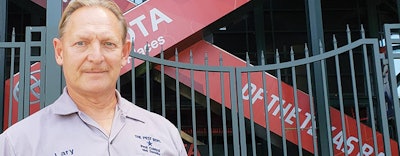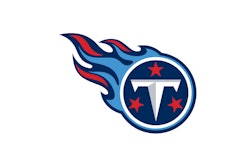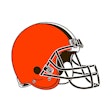
Stadium operators have a rodent problem. There are the rodents they can see (mice) and the ones they can't (rats), and there's a good chance they don't want to acknowledge the existence of either. But the truth, according to Lary Adkins of Fort Worth, Texas-based Pest Boys, is that just about every open-air stadium in America is infested, and operators are going at the problem all wrong — if at all. Adkins has experience ridding Texas Stadium (the former home of the Dallas Cowboys) and The Ballpark at Arlington (now Globe Life Park, the Texas Rangers' home) of rodents, and he currently works with clients as diverse as Epic Waters Indoor Waterpark and Texas Motor Speedway. AB senior editor Paul Steinbach asked Adkins to shine a light on the pest issue.
Do stadium operators know they have a problem?
Oh, absolutely. Everybody in the upper food service management and everybody in the operations and maintenance for the stadium absolutely knows that they have a problem. I do recreation centers, too, and rats in these facilities are unacceptable, but for some reason it's an acceptable part of stadium operations. That will be the first thing they'll tell you, "It's a wide-open facility. We're going to have issues."
Are they doing enough about the issue?
No. They're being told by the national extermination companies that they can only hope to control the pest population because the stadiums are wide-open venues. But you don't get any more wide open than Texas Motor Speedway's 1,200 acres, and it's rodent-free. We haven't had a rat reported in any structure there in the last 18 years. We haven't had a lost-product report since 2000, either.
How do mice and rats differ as stadium pests?
When mice get into concessions stands, that's where they take up residency. Their whole life — food, water, shelter — revolves around a 75-foot radius. They're in the stands all the time, even with people in there, and you'll see glimpses of them scurrying around. Rats will travel up to 100 yards. They will get into those concessions stands, but they won't be spending all day. They're in there to get their food and get out. Rats are going to totally vacate that stand unless it's been clear of any people for a while. They spend the majority of their life within the cinderblock walls, ceilings and dark corridors that run through the grandstands.
Is your method of removal different, too?
Mice are stupid. If I set a mousetrap and it fails to catch the mouse, that mouse will come to that mousetrap again five minutes later. If a rat goes to a trap, and it misses them, that rat may never go to that trap again in its life. Rats adapt very quickly. You're going to have thousands of mice, but they're removable. The rats are not until you get control of the food situation. After the season's over and all the food can be isolated, that's when I go into total-elimination mode. Now I can use almost any type of food, and I can trap them all. Or I can provide them food and water, which I can control and kill them that way.
Are you recommending poison?
It depends on the stadium. An outdoor ballpark, it's not as big a problem if you poison the population. When I started cleaning out Texas Stadium, the nighttime security guards were picking up 30 dead rats off the playing field every night — not counting how many were in the grandstands and in the rooms that they checked — because I was poisoning them. But if you poison 500 to 1,000 rats in a domed stadium, you're going to have some smell issues for about six to eight weeks, because they're going to die anywhere and everywhere. They're going to die in places you can't get to. If a domed stadium opens with rats, it may close with them.
How can you best assess the extent of infestation?
We have the technology today — cameras that will flash pictures of everything moving in there at night. If you are serious, you would spend $200 and set up four cameras in some of these isolated spots. You're going to know in 24 hours if you've got a problem.
What three things should venue operators do today to start to get a handle on their rodent problem?
First thing for any stadium, you need rodent control starting three months before you open, because once you move food into these facilities, all bets are off. Secondly, if you do have a problem, you need to isolate all the food products as best you can, and you have an opportunity to eliminate problem at that point. Third thing is pest control operators are not doing enough monitoring. We get mad at facilities because they don't tell us the same day somebody reports a rodent. I run a policy with the stadium, and I have them instruct their employees, if you see any rat activity, we need a call immediately. I don't care if it's Saturday or Sunday. We have about three to five days to trap that rat before it isolates its food source. If we can trap it in that three to five days, we can provide whatever type of bait we want on the traps. The longer you leave that rodent in there, once they have found their niche, they're breeding six to eight litters of eight rats a year. Mice are breeding even faster.
What's at stake?
Rodents carry disease and they pass it on through their urine, and to ignore this problem that they know they have is, to me, not an option. Each rodent — mice or rats — urinates as much as 3,000 droplets every day. They mark almost everything they come in contact with. There isn't time to clean these stadiums every night. They can wipe down tables, but there are surfaces that are not going to be clean. Even dishes that have been washed and left to dry, rodents are going to be over them overnight. Nobody thinks about that when they come in the next day. All they see are spoons that need to be put away because they're clean. Well, with the naked eye, you're not going to see the rodent urine on them. My point is, food poisoning can be controlled because rodents in the stadium is something that can be controlled.
This article originally appeared in the November | December 2018 issue of Athletic Business with the title "Exterminator shines light on stadium rodent problem." Athletic Business is a free magazine for professionals in the athletic, fitness and recreation industry. Click here to subscribe.

































